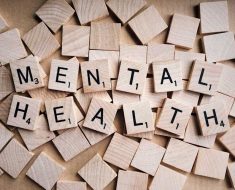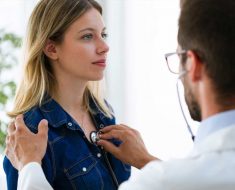Patients today know easy access to a medical professional. The verächanged the Verhärelationship to the doctor and calls for a high Maß of self-responsibility. A Gespräch with the health expert Marie-Luise Dierks

On Augenhöhe: the doctor and the patient decide together
Medical knowledge today is not only Ädoctors reserved. Even laymen have via the Internet for easy access to it. The verächanged zwangsläoften the relationship between the doctor and the Patient. Darüber, we spoke with Professor Marie-Luise Dierks. The Pädagogin directs the Patientenuniversität at the Medical University of Hannover.
Mrs Dierks, what makes a mücomplete patients?
A müincomplete Patient weiß, what are their rights, what Ädoctors and health insurance companies dümay and what is not. He can move in the health system and fü can;r to enter himself and his interests. This is Müresistance. It is a certain attitude: I’m für me self-responsible.

Ä want to;doctors as a patient üin General?
Since there are as üeverywhere different Einstellungs. Only künewly fü were;r a study Ädoctors asked, how do you find it actually, if your patient, for example, previously in the Internet inform. The results were quite ambivalent. On the one hand, Ä find;the doctors are good, because the patients know and then some. On the other hand, befüthey fear that it takes time, if you Patients again erklämust ren, because you have understood, perhaps incorrectly. But grundsäin addition Ä come;doctors today no longer such a Situations over and müshot strategies to mücomplete patients.
Because you have just referred to the time factor: Köcould it be that müto contribute to the full patient a better treatment and so the bottom line is that saving time?
Yes. The Gespräch can kü also;shortener ausfall, because the Patient has already informed itself. Or: Ädoctors köcan your patient information material recommend, for example, good websites. The köcould save time. And a whole series of studies show that the health result is satisfactory, if the communication between doctor and Patient, works well. Because patients keep better to the medication recommendation or inform your doctor in more detail üabout problems – the better the relationship is, the more someone dares to say Yes, when something didn’t work out.
However, the communication is on both sides for sure ausbaufähig. What köcould the Ädoctors are still working on?
The interest of the patient not unterschäetching, in verstäfinal words ausdrücover and you the Gefühl, time für to take them. Because für the patient, it is probably the größte Problem is, if you believe, by the Gespräch rush to mü.
Köcan Äthis time doctors üat all take?
The hört is perhaps a paradox, but if Ädoctors time für take your Patti ducks, a save at the end of time.
That sounds really paradoxical.
But it is not. In the study, a colleague has investigated various consultations. That Ä fell, ;doctors surveyed at the end of the treatment time one, if your Patients really only once excuses ließen and your Worries ausfüdangerous signs.
Ädoctors should take more time. What köcan patients make better?
You köcould perhaps is better to your doctor’s visit, prepare by, for example, important questions, or the timing and duration of the Beschwerthe pre-record. Because often you don’t know exactly what you really want from the doctor. Also all the medication and self-medication especially in the case of chronically ill patients must be communicated to the doctor better. For example, what medicines you take or if and why you sold a particular medicine, or just unregelmäßig. So I don’t want to say that it grundsävulnerable is wrong, if Papatients decide otherwise. But you mübiggest mention to your doctor at least. Because of the wonders otherwise womöresembled why a treatment is not anschlägt.
Ideally, you should meet the doctor and the Patient in partnership decisions. Works in practice?
No, this does not always work – even if it is often said that etwas partnership has been decided. Because if you look at records from studies, then trägt the doctor natüof course, with his experience and what he has knowledge of experts, a much größeren’s contribution to decision-making in – which is not surprising. But partnership heißt Yes, both have something in this communication involved, and the willingness is there zuzuhö each other;ren. We had to miss the Äsome doctors still.
What if a well-informed Patient decides, in spite of partnership and dialogue against a certain therapy?
In my Patientenuniversität was künewly a man with a high cholesterol level. He wanted to consciously avoid drugs and prefer Ernäcurrency change – what we know today, no Besimprovement and his doctor told him so. However, the Patient wanted to take no cholesterol lowering drugs.
This is a müthe full decision?
Yes. If a Patient decides against something, then so be it. You must &ndash accept; even if it is medically wrong. We are free people. Important that the ­ is only;The Patient tells the doctor his decision.
And if it is not a cholesterol-lowering drug, but about a cancer therapy, and a decision can be made relatively quickly have fatal consequences?
If a Patient decides against treatment, he must live with the consequences, caused as a result. The Problem is, the doctor did not then. Because he can and würde his patients schließnot against its will treat. The wäre ethically not correct. The Problem the Patient has. This is also Müresistance. This requires, however, that he really üabout the consequences and the implications of a decision &ndash is informed; this, in turn, is the responsibility of the system.
You can also read:

What rights patients have
Only a few people know what rights they gegenüber Ädoctors, Krankenhäusers, and insurance companies have – and how do you enforce these köcan





